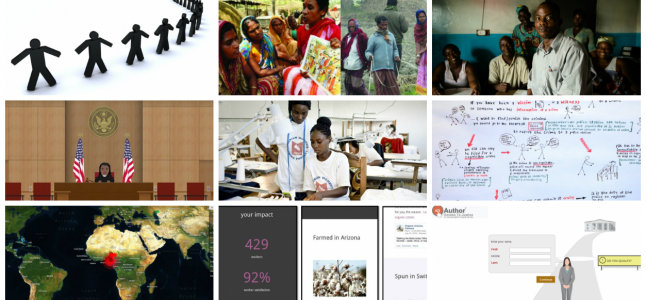Following a tough selection process, the online voting round and wildcard selections: our finalists for the Living Wage Innovation Challenge and the Innovating Justice Awards have been chosen! Allow us to introduce you to the finalists from each of our three categories, the Living Wage Innovation Challenge, Innovative Ideas and Successful Innovations; and give you a snapshot of their innovations.
Would you like to meet and work with these innovators at the Innovating Justice Forum in the Peace Palace? Contact us!
Living Wage Innovation Challenge
Made in Africa is the world’s first trade financing vehicle that ties social and environmental impact to the cost of capital. Made in Africa has two key components: Trade Financing and Capacity Building. MIA offers below-market capital rates, highly appealing to factories typically facing 25%+ interest. As factories increase their impact, their interest is lowered. Throughout this process factories are given the tools and coaching they need to improve both operations and impact. Highly-rated and fair trade-certified factories can then become eligible for production matching with top US brands.
Follow @Made in Africa on Twitter!
The Living Wage calculation developed by WageIndicator is based on its online/offline data collection and data handling system. It is related to current price levels and updated each month. International standards for calculation are used, thus making results acceptable and comparable across borders. WageIndicator Living Wage is a fact-based tool that makes realistic negotiations on wages possible and promises to help avoid labour unrest. WageIndicator Living Wage features a comparison of wages and living wages throughout the supply chain for the first time.
Follow them on Twitter @WageIndicator!
Supply chain transparency affects multiple stakeholders across the fashion supply chain; brands, suppliers, and consumers. Project JUST gathers and communicates real-time data to the brand and consumers. This data gets crowd-sourced from different parties to allow for authentication, and the brand can track the progress of an order, understand on the ground conditions, and be able to interfere when needed. The data is distilled for the consumer in an engaging way, through point of purchase and QR codes. JUST will affect living wages by giving consumers and brands an authentic pulse into the existing conditions of their supply chains.
Follow them on Twitter @project_JUST!
Innovative Ideas
The Accountability Lab provides collective dispute resolution in densely populated townships in Liberia to ensure sustainable, fair justice for citizens amidst the chaos of the Ebola crisis. Community Justice Teams are operating a first-of-their-kind program in Liberia with the support of the Accountability Lab for almost a year. The system is free and available to citizens 24/7 and each case is carefully documented through written records taken by a notary. They also work with the local police and courts to refer civil cases to community mediators. This helps to reduce the cases in the local court.
Follow on Twitter @AccountLab!
When ignorance of law is not an excuse, how do we make sure that we bridge the legal knowledge gap in the society? LawForMe plans to address this by becoming a unique online platform to create simplified understanding of legal processes in India. Through interesting graphics and easily-understandable flowcharts, legal information will be made less intimidating for a common user. The Indian legal system has become complex, inefficient and has become incapable of solving the justice needs of citizens; the delivery method of LawForMe provides the perfect response to these needs.

In the US more than 80% of litigants appear without lawyers in matters as important as evictions, mortgage foreclosures, child custody and child support proceedings, and debt collection cases. This innovation plans to use gaming technology to provide self-represented parties in Connecticut with foundational advocacy experience before going to court, through a highly collaborative design process that contributes to building a community of support around the needs of self-represented parties. After a sufficient amount of play, usage data will be analysed to evaluate results and better understand self-represented parties’ self-advocacy training needs, with the results applied towards further development and expansion into other jurisdictions.
Follow them on Twitter @NuLawLab!

Successful Innovations
Land measurement is currently monopolised by the government and is a critical service that determines land claims. BRAC’s Human Rights and Legal Aid Services Programme has developed and tested a business model and market mechanism for Land Measurement by enabling individuals to become sustainable micro-entrepreneurs. The training provides land entrepreneurs with government certification in Land Measurement enabling them to have parity with government agents providing similar services. They also provide free information on property rights, ensure free birth, death and marriage registration services, and act as first responders on human rights violations.
Follow on Twitter @BRACworld!
SDN’s prototype digital mapping and data visualisation software actively promotes transparency and accountability of oil spills, allowing anyone to analyse the data and take action based on the information. The entire 8,000 oil spill records and all core functions are provided in less than 2MB of data to ensure reliable use across the Niger Delta. Communities and Civil Society can use the system to put pressure on the oil companies, oil theft hot-spots can be identified, and human and environmental geographic base-layers such as soil type and population provide useful context for environmental regulatory agencies.

For self-represented litigants in the US even initial steps like determining eligibility and filling out court forms present daunting challenges to those unfamiliar with the process. A2J Author is the first court form automation software designed to be pro se user friendly. By the end of 2014, A2J Author 5.0 will also include a mobile viewer, which is important because many of the poor in the United States only access to the internet via their smartphones. It is the only free tool available to legal aid attorneys and court staff to automate court forms for people without lawyers and A2J Author is completely free for any non-profit organization to use for non-commercial purposes.
Follow them on Twitter @A2JAuthor!


